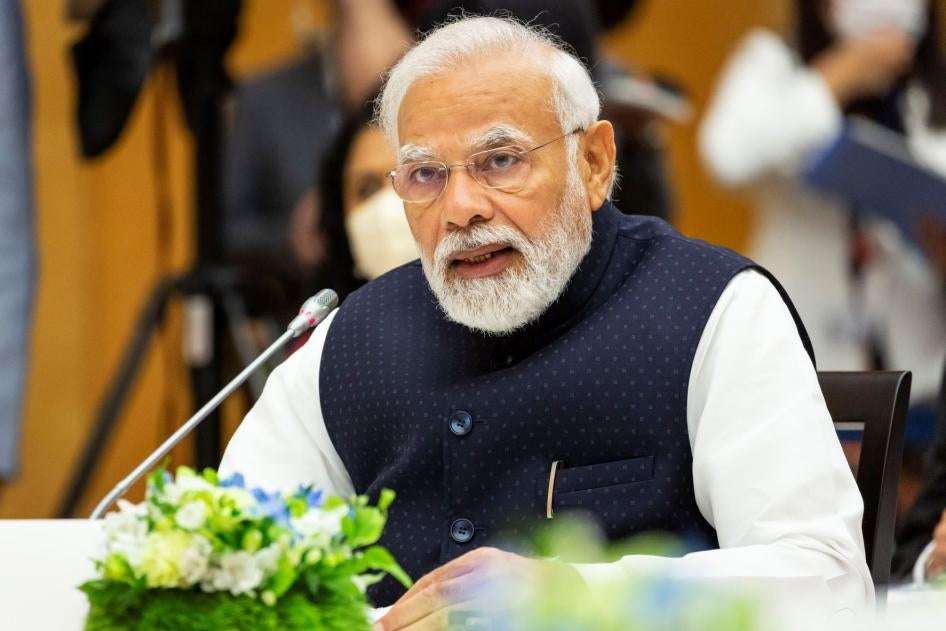Narendra Damodardas Modi, popularly known as “Modi,” is a visionary leader and resolute politician with a dynamic personality. His Lok Sabha Constituency is Varanasi. He has been the 14th Prime Minister of India since May 2014. He is the leader of the world’s biggest democratic party, the Bharatiya Janta Party (BJP). He is also the longest-serving chief minister of Gujarat, having been in office from October 2001 until May 2014.
Formative Years
Born on September 17, 1950, in Vadnagar, a small town in North Gujrat, Mehsana District, Mr. Modi comes from a humble household with few resources. Modi balanced his academic life with a non-academic life to support his family’s tea stand. Despite the family’s financial struggles, he was industrious, passionate about debates and reading, and spent hours reading in the local library. His love for swimming also contributed to his success.

Service is one term that defines Modi’s boyhood and has stayed with him throughout his life. Modi, as a child, had a dream of serving in the army, but destiny had other plans for him. At 17, he travelled to India and returned with a clear goal. He joined the Rashtriya Swayamsevak Sangh (RSS), a Pro Hindu, socio-cultural organization. It aims for India’s social and cultural regeneration.
Modi’s rise from political organizer to renowned politician demonstrates his extraordinary leadership abilities and devotion to administration and governance. Modi’s first 100 days in office offer insight into his unique thinking and reformist attitude. His approach to administration is seen as above politics, emphasizing minimum government and maximum governance. His Pancha-Amrut framework for convergent governance is an excellent example of his ideology. His accomplishments as India’s Prime Minister are evidenced by several honors and extensive experience as a successful administrator.
The rise of the BJP
The BJP, a Hindu nationalist party, has always been unpredictable. With its past decisions, the party has never disappointed citizens by fulfilling its electoral manifesto. The 8th Lok Sabha elections of 1984 marked a significant shift in Indian politics, following Prime Minister Indira Gandhi’s assassination. The Congress party won 414 seats, while the BJP secured 7% of the vote share. It marked its first significant foray into national politics. BJP won only two seats, representing 2.82 million people in a nation of 762 million.
BJP’s rise in India has been affected by sociopolitical concerns and political instability. In the 1991 Lok Sabha elections, the BJP won 120 seats with a 22.5% vote share. By 1996, it was already the largest party in the Lok Sabha, but the administration was short-lived. BJP maintained its rising trend, winning 22% of the votes and 138 seats. In the 2010s, the BJP earned a commanding majority of 282 seats, dropping Congress to 44 seats and 19% of the vote. In 2019, the BJP raised its vote share to 37%, winning 303 seats and representing 772 million people. BJP’s future in India relies on its ability to maintain its power and endure opposition challenges.
Modi and Trend
Narendra Modi has always been a hot topic in world politics. His style of making decisions and the type of governance he had in the past 10 years in India are incredible. Decisions like demonetization and his vision for making India a digital India have left a remarkable impression. He is in trend with his decision to implement CAA. It is an act passed to provide citizenship to migrants from Pakistan, Afghanistan, and Bangladesh. It was passed by Parliament on March 11th, 2024. The act is for the six minority groups, i.e., Hindu, Sikh, Christian, Jain, and Buddhist Parsis.

Nowadays, he is making visits to different states ahead of the Lok Sabha election. Other reason for his being in the news is the inauguration. He has laid the foundation stone for several developmental projects across India. Swachh Bharat Abhiyan, Pradhan Mantri Jan Dhan Yojana, Make in India, and PMUY are some of his successful schemes. His foreign policies have led to improved relations with the Middle East and several countries. His commitment to women’s empowerment is noticeable in his different decisions. As he said, “My third term will write a new chapter in the rise of women’s power.” The footprints can be seen as the government passed a law to reserve seats for women in Congress last year.
“I did not get an opportunity to die for the country, but I have got an opportunity to live in the country “
~ Narendra Modi



